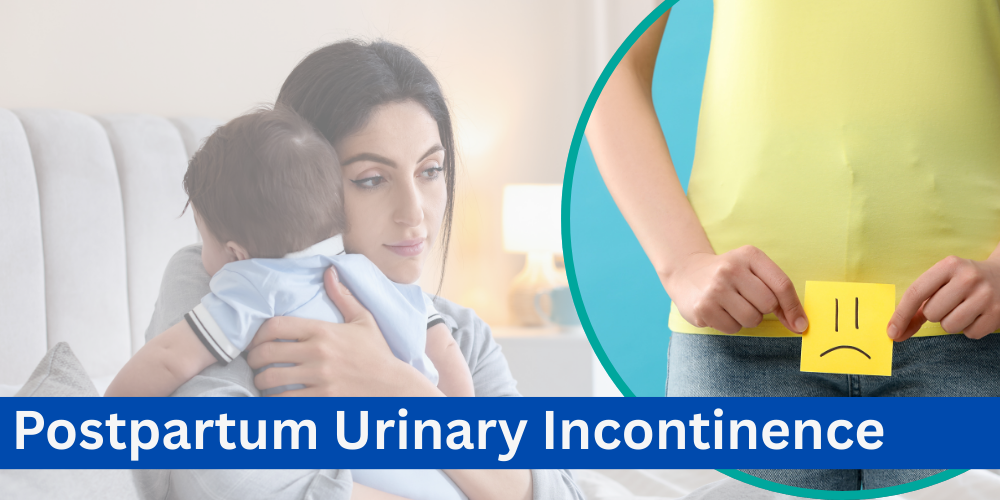Postpartum Urinary Incontinence – Causes, Prevention & Solutions
Motherhood is a journey filled with joy, but it also comes with physical, health and emotional challenges. One of the most common yet less-discussed issues women face after childbirth is Postpartum Urinary Incontinence. This refers to the unintentional leakage of urine after delivery, often caused by weakened pelvic floor muscles and hormonal changes.
At RealCare, India’s top-rated adult diaper manufacturer and seller, we understand how this condition can affect a woman’s confidence and daily life. That’s why our high-quality, absorbent, and skin-friendly products are designed to help mothers feel comfortable, secure, and stress-free during their recovery journey.
What is Postpartum Urinary Incontinence?
Postpartum Urinary Incontinence is the loss of bladder control experienced by women after delivery. This condition occurs because pregnancy and childbirth put pressure on the pelvic floor muscles and bladder, leading to temporary or long-term leakage of urine. It can range from mild leakage when sneezing or laughing to more frequent and unpredictable urine leaks. It is especially common during:
- Sneezing 🤧
- Laughing 😂
- Coughing 😷
- Lifting heavy items 👜
- Physical activities 🏃♀️
Although many women feel shy discussing it, this condition is very common and treatable. It can feel overwhelming, it is a natural and temporary condition for many new mothers.
How Does Postpartum Urinary Incontinence Happen?
During pregnancy and childbirth, the pelvic region undergoes extreme pressure. Vaginal delivery, prolonged labor, or use of instruments (like forceps) may stretch or damage the pelvic muscles and nerves. This weakens the control over the bladder, leading to leakage.
Table: Common Factors Affecting Bladder Control After Delivery
| Factor | Effect on Bladder |
| Vaginal Delivery | Stretches pelvic floor muscles |
| Prolonged Labor | Weakens bladder control |
| Instrumental Delivery | Nerve or tissue damage |
| Hormonal Changes | Reduced estrogen weakens tissues |
| Obesity/Overweight | Adds extra pressure on bladder |
Causes of Postpartum Urinary Incontinence
Here are some causes of postpartum urinary incontinence
- Weak pelvic floor muscles
- Nerve damage during delivery
- Hormonal changes after childbirth
- Overweight or obesity
- Chronic constipation putting pressure on the bladder
- Genetics (family history of incontinence)
How to Prevent Postpartum Urinary Incontinence
Prevention is possible with some healthy lifestyle habits before, during, and after delivery. Here are some tips:
- ✅ Do Kegel exercises regularly to strengthen pelvic floor muscles.
- ✅ Maintain a healthy weight before and after pregnancy.
- ✅ Eat a fiber-rich diet to prevent constipation.
- ✅ Avoid excessive caffeine and carbonated drinks.
- ✅ Practice good posture while sitting and lifting after delivery.
- ✅ Empty the bladder completely when urinating.
- ✅ Stay hydrated but avoid overconsumption of fluids at once.
- ✅ Practice bladder training by scheduling bathroom visits.
Ways to Overcome Postpartum Urinary Incontinence
While many women recover naturally within months, some may need extra care. Here are effective solutions:
- Pelvic Floor Therapy – Guided exercises from physiotherapists.
- Bladder Training – Scheduled bathroom visits to improve control.
- Healthy Diet – Include fiber-rich foods to avoid constipation, which worsens leakage.
- Stress Management – Relaxation techniques like yoga and meditation.
- Use of Adult Diapers – Trusted brands like RealCare offer soft, absorbent, and skin-friendly adult diapers that provide 100% leakage protection and confidence.
Medical Points to Prevent Postpartum Urinary Incontinence
- 👩⚕️ Topical Estrogen Therapy: Recommended by doctors in some cases to strengthen tissues.
- 👩⚕️ Biofeedback Techniques: Helps monitor muscle activity and improve control.
- 👩⚕️ Medications or Surgery: Rarely needed, but may be suggested in severe or long-term cases.
Tips for Women with Postpartum Urinary Incontinence
- 🌸 Stay positive – remember this is temporary for most women.
- 🌸 Don’t be embarrassed—this is a common condition.
- 🌸 Wear RealCare adult diapers for day and night protection and comfort.
- 🌸 Stay active with gentle exercises, yoga and breathing exercises to reduce pressure on the bladder.
- 🌸 Focus on self-care and mental well-being—you deserve it!
- 🌸 Stay hydrated but distribute water intake throughout the day.
- 🌸 Speak to a gynecologist if leakage continues beyond 6–12 months.
Role of RealCare in Managing Postpartum Urinary Incontinence
At RealCare, we know that Postpartum Urinary Incontinence can affect confidence and daily life. Our premium range of adult diapers is designed to provide women with:
- ✔️ 100% Leakage Protection – No more embarrassment due to sudden leaks for day and night.
- ✔️ Soft & Skin-Friendly Material – Gentle on sensitive post-delivery skin.
- ✔️ Long-Lasting Absorption – Keeps you dry and comfortable for hours.
- ✔️ Odor Control Technology – Maintains freshness and hygiene.
By using RealCare diapers, women can carry out their daily activities without embarrassment or discomfort and can focus on enjoying motherhood without worrying about Postpartum Urinary Incontinence.
FAQs on Postpartum Urinary Incontinence
1. Is Postpartum Urinary Incontinence permanent?
Not always. For many women, it improves within months. In some cases, medical support may be required.
2. Can Kegel exercises really help?
Yes. Regular Kegel exercises strengthen the pelvic floor and significantly reduce leakage.
3. When should I see a doctor?
If symptoms persist for more than 6 months or worsen over time, consult a gynecologist or urologist.
4. Can using adult diapers help manage this condition?
Absolutely. RealCare adult diapers provide discreet and reliable protection, helping women live confidently.
5. Does C-section prevent urinary incontinence?
Not completely. While vaginal delivery has higher risks, hormonal and physical changes can still cause incontinence after a C-section.
✨ Final Note:
Postpartum Urinary Incontinence is common, but it’s not permanent for most women. With the right care, prevention, and support from trusted products like RealCare adult diapers, women can lead a confident and stress-free life even during recovery.


[…] guide walks through why Women’s Incontinence Pull Ups matter, how they work in daily life, still focusing on real benefits. One brand worth […]